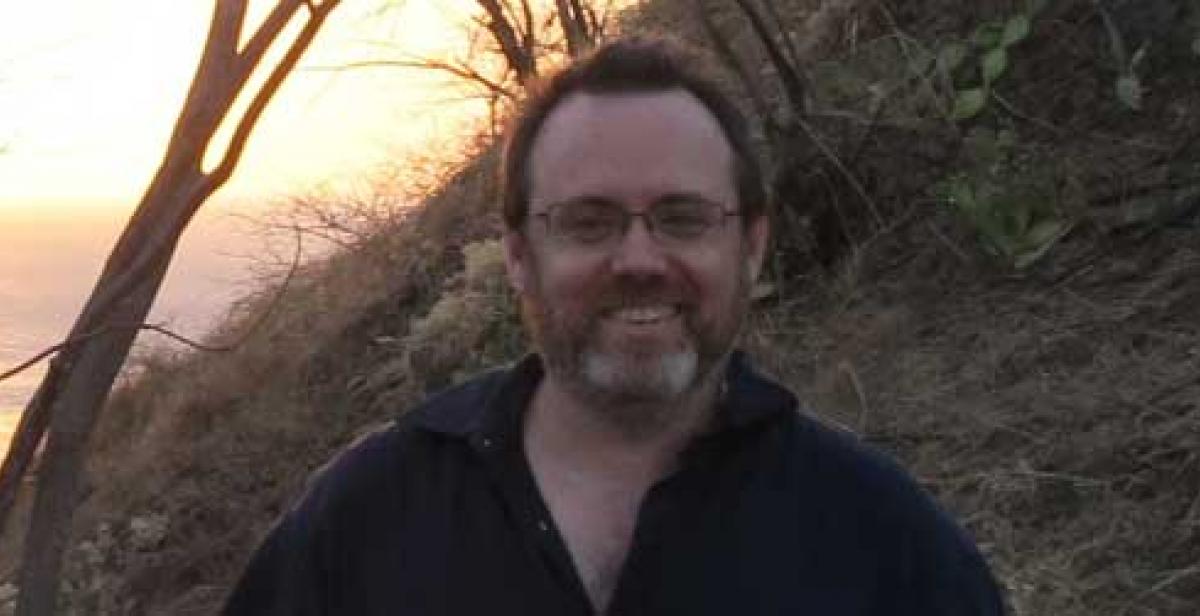Ernest, from Spain, was a Progressio development worker with Fundación Luciérnaga in Nicaragua from January 2005 until January 2009.
What have you done since leaving Progressio and what do you do currently?
In February 2009 I joined Alba Sud as a coordinator Alba Sud is a research and communication centre for international development founded in Barcelona in 2002. The centre has a research and communications presence in Spain as well as Central America and Mexico. I now live between Managua and Barcelona carrying out research and making documentaries on rural development.
Please describe your role and the partner organisation that you worked with as a Progressio development worker
At Luciérnaga I worked on developing communications campaigns on issues such as responsible tourism and food sovereignty. This involved analysing the circumstances of specific communities and preparing a diverse range of educational resources to develop campaigns, be it documentaries or publications, and then distributing them to a wide variety of audiences such as universities and community groups. I also spent some of my time training members of the team, mainly in project design and management, which enabled them to do this type of work.
What inspired you to become a development worker?
I spent quite a few years working in Nicaragua and other Central American countries with development organisations, but I’d never had the chance to settle in one of those countries for a long period of time. I wanted to take a risk and immerse myself in the things I believed in from within a community-based organisation. Progressio gave me the opportunity to do this.
What struck you most about Progressio’s development worker model/approach?
The generosity with which Progressio managed their development workers’ activity once they were with the partner organisations. We were able to really work and we felt that they really believed in what we were doing. Progressio respected our work and that of the partner organisations. We weren’t working for any other agendas or interests, which was very encouraging. I also really valued how Progressio followed up the work we did; I can honestly say that they really did read our reports and we always received a considered response.
What did you enjoy most about your role, and of your experience as a development worker?
The opportunity to develop comprehensive communications campaigns with a real commitment to people from the communities and social organisations who, ultimately, we were working for. At the same time I also had the chance to learn what I had over the years. Luciérnaga was a great learning experience in all senses.
What were some of your main achievements while working as a development worker?
Developing a communications campaign on responsible tourism. For the first time in Nicaragua, we raised awareness of both community tourism and the need for public debate on the risks and negative impact tourism can generate. This involved producing eight videos, two books, various educational materials and running dozens of public events.
And what were some of the key challenges and lessons learnt?
I found it difficult to understand and accept that the processes of social change are a lot more complicated and contradictory than I ever could have imagined and that, in reality, they are riddled with contradictions and limitations, even in themselves. In theory this is easy to understand, almost commonplace you could say, but from a personal, practical perspective it really is complex. It means holding onto your commitment and belief in the things that lead you to become involved in this type of work, without giving in to the cynicism that unfortunately surrounds our profession.
Did this experience change you as a person in any way? If so in what way(s)?
Without a doubt. You mature and grow as a result of the experience. And not only in the sense of learning new skills, but also as a person and as a professional as a result of what’s entailed.
Did your experience as a development worker influence your career/ future direction, and help you to get to where you are today? If so, how?
I gained a great deal of experience and knowledge in the field of development communications. This, along with the development experience I already had in the fields of education and social research, has helped me to develop a lot more in my new role with Alba Sud, where I have been able to combine these three skill sets. Without the experience I gained from working with Progressio I would have difficulty doing what I do now.
What advice would you give to someone who is thinking of becoming a development worker?
Working in development is about having a commitment to society and a professional attitude. These are both essential traits. You also need a certain capacity for self-criticism; to learn to continually evaluate yourself in view of the social processes you are involved in and your own position in relation to them.



